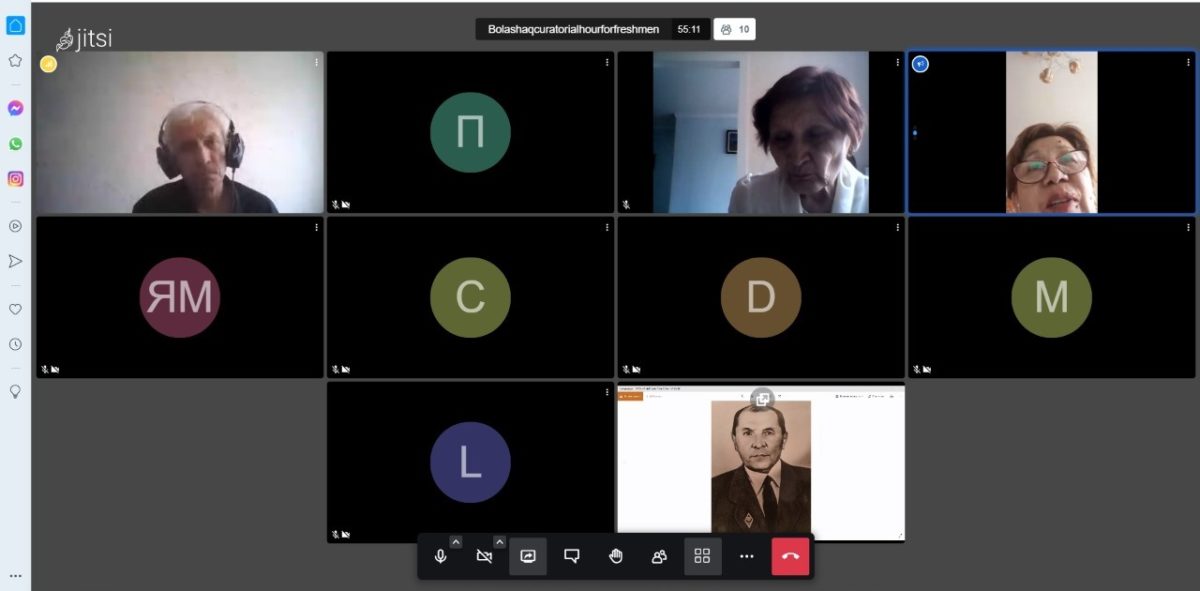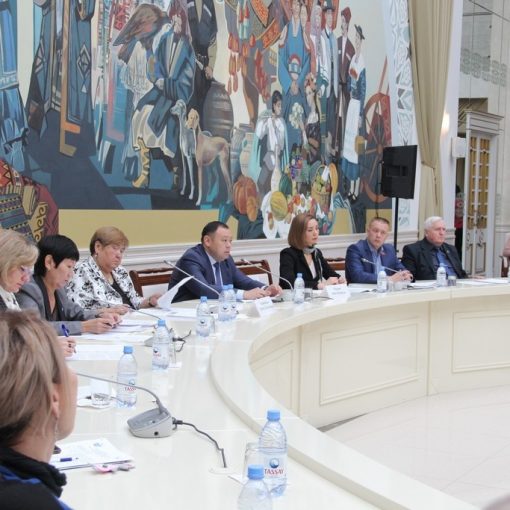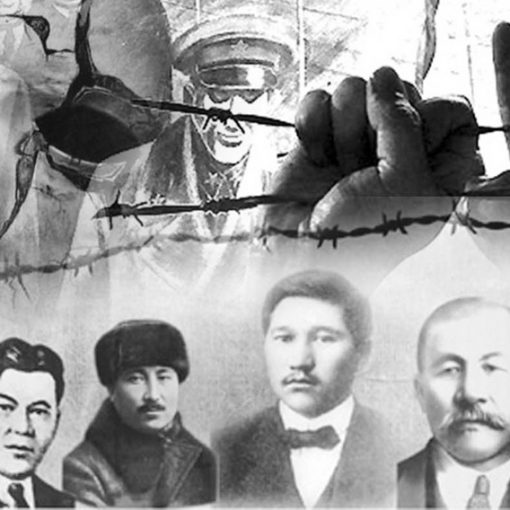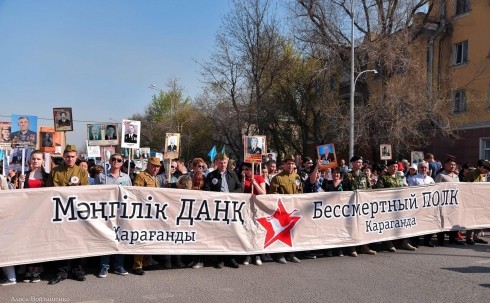The department of foreign languages and intercultural communication completed a series of curatorial hours in the framework of the national program “Rukhani Zhangyru”.
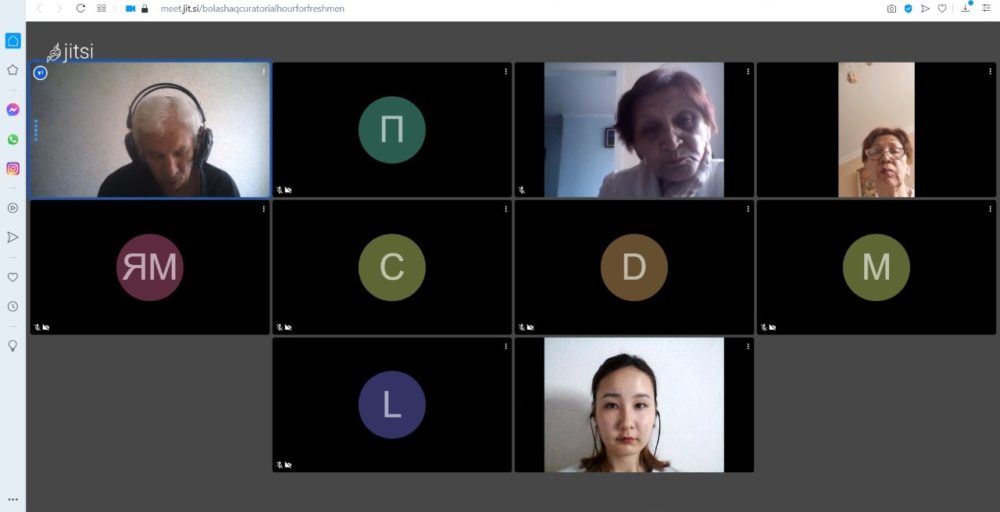
Oriented on revival of spiritual values of Kazakhstani people taking into account all modern risks and calls of globalization, it is urged to keep national identity, to revive in memory of new generation of names of outstanding figures of the past in the most different areas of society.
The last curatorial hour on the theme “Great names of the Great Steppe” coincided with the Defender of the Motherland Day, the eve of Victory Day.
The curatorial hour was devoted to the older generation of Kazakhs, their relatives and close people who during the war took part in the military actions at the front, in the work on the home front and thereby brought closer the Victory of all Soviet people in the Great Patriotic War.
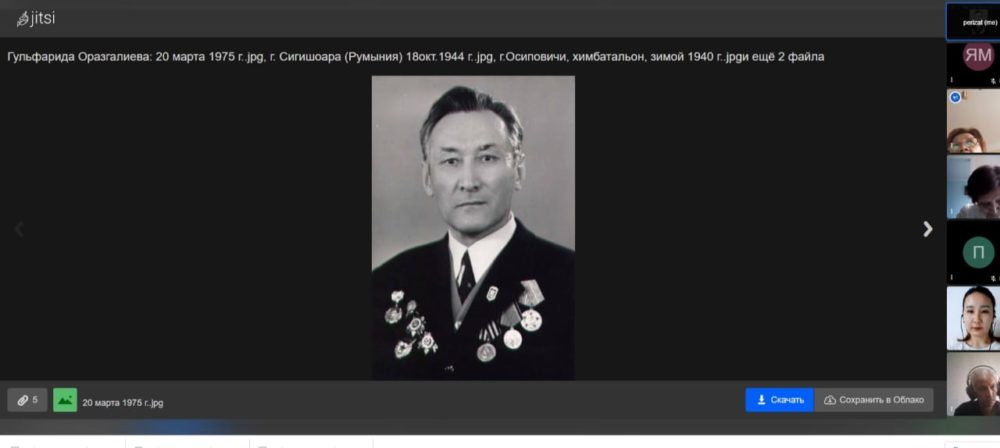
1 million 196.164 Kazakhs fought at the front, 603.836 people were mobilized in the labor army, 615 people became Heroes of the Soviet Union. Among these people were relatives of the department’s staff, faculty and students.
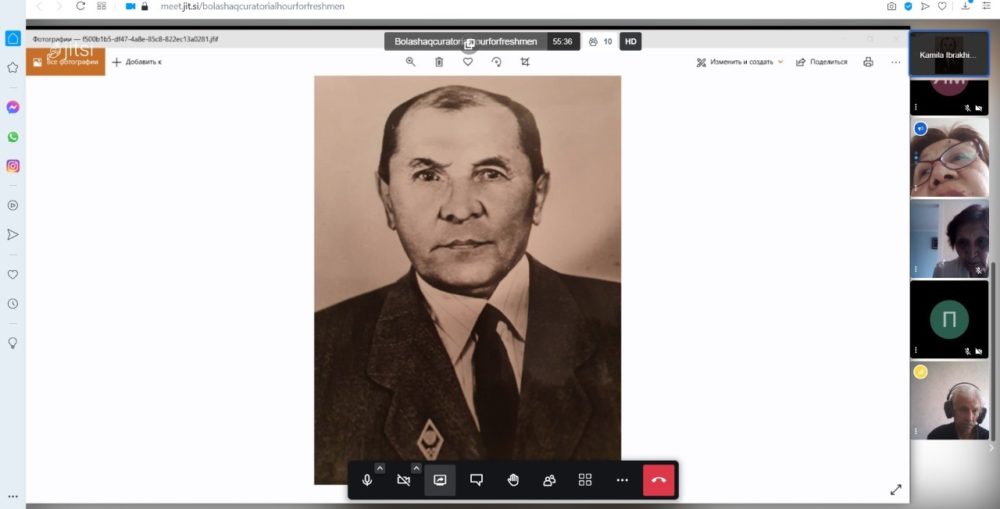
The organizers invited students and faculty of the department to look into the history of their families and share stories about those to whom we should also be grateful for their courage, heroism, fortitude, steadfastness that helped preserve the independence and integrity of our state.
Stories about these great men were told throughout the hour.
Professor Gulfarida Shamsulovna Orazgalieva told about her father, Shamsulla Sarovich, who fought in the war from the first to the last day, participated in the Great Patriotic War as an officer and was awarded the orders of the Patriotic War of 1st and 2nd degree. His name is on the Honor Board at our academy.
Gusmanov’s mother Karima Gusmanovna was a worker on the home front.
Both grandfathers of the senior lecturer of the department Kashuro Alexander Sergeevich heroically fought on different fronts. One of them died under Stalingrad, the second reached Berlin, signed on a wall of the Reichstag.
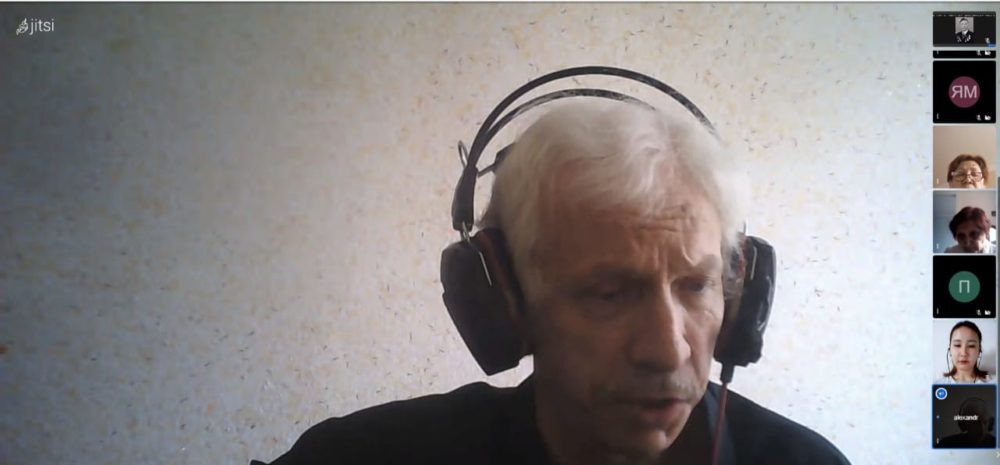
The parents of Begakhmetova Balzhan Kairovna worked in the rear in the famous Tankograd in the Urals and in a sewing factory evacuated from Lugansk to Pavlodar.
Childhood of parents of the senior teacher Lebedeva Galina Vladimirovna Vladimir Alekseevich and Olga Stepanovna was necessary for wartime. When the war began, they were 11 and 9 years old. They had to work at the collective farm on an equal footing with the adults. They mowed grass for cattle feed, cared for animals, plowed, sowed, worked for 10-12 hours, despite their young age and chronic malnutrition, the undernourished teenagers simply did not have enough physical strength. But they survived.
Nina Georgyevna Guseva, mother of a senior lecturer of the department, was also a “child of war” in 1941. She was 8 years old. She recalls the war as one of the most terrible pages of life. With Kazakhstan is connected almost all of her life.
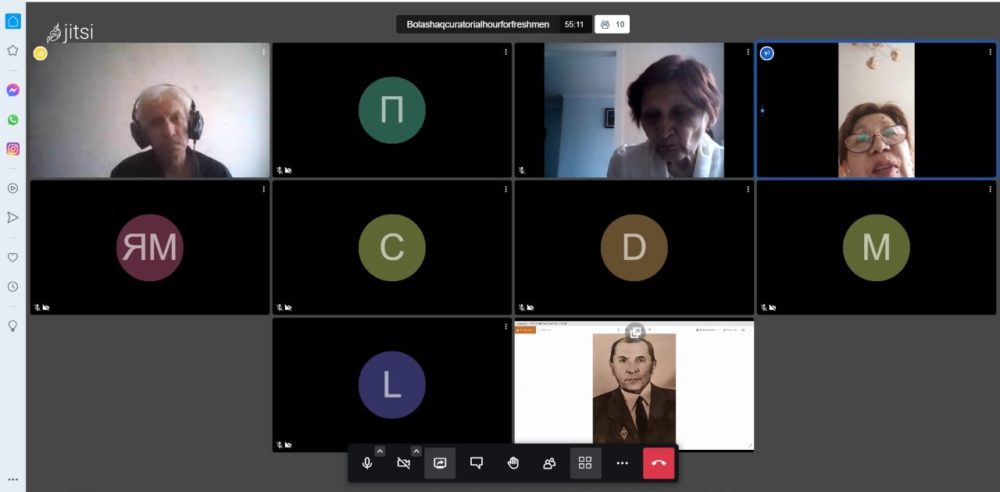
Students of the Department also shared stories about their relatives, who worked in the home front during the war.
The curatorial hour will stay in the memory of students and teachers for a long time. It was noticed that the stories about those who went through the war, didn’t surrender, overcame everything, survived and saved the Motherland touch the soul and make us feel proud of our nation, let us learn more about its great personalities.
Department of Foreign Languages and Intercultural Communication
